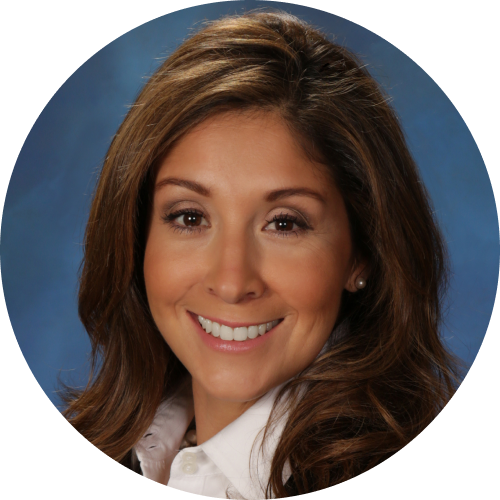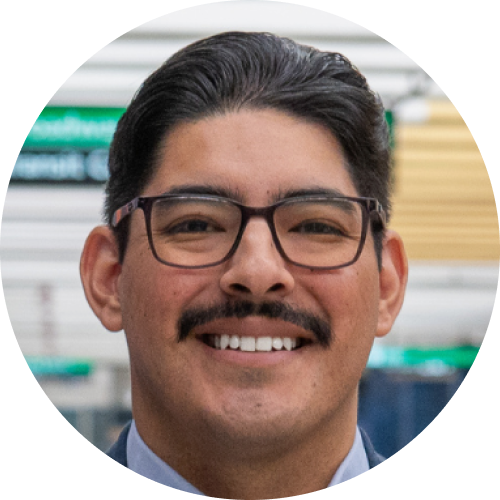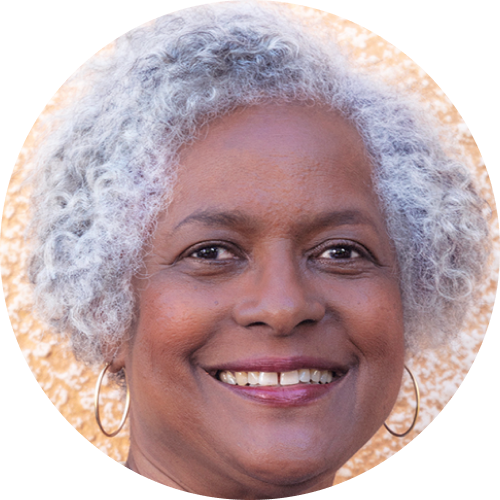Contra Costa District Races
Jump to a race:
Crockett Community Services District Director — Short Term | Discovery Bay Community Services District Director | Rodeo-Hercules Fire Protection District Director | East Bay Municipal Utility District Director, Ward 1 | East Bay Municipal Utility Director, Ward 2 — Short Term | East Bay Regional Park District Director, Ward 2 | Central Contra Costa Sanitary District Director, Division 5 | Ironhouse Sanitary District Director | BART Board of Directors, District 5 | BART Board of Directors, District 7
Crockett Community Services District Director — Short Term
Candidate Statements
Gaunt Murdock
- Engineer
- Statement pending or not available.
Matthew Raver
- Electrical contractor
- Statement pending or not available.
Discovery Bay Community Services District Director
Candidate Statements
Carolyn Graham
- Discovery Bay Community Services District Director
- Infrastructure: “The next four years will present many challenges, many dealing with the aging infrastructure of our water and wastewater systems.”
- Budget: “We often think of ourselves as a small town and in many ways we are but the TODB is a major operation with an annual Budget of $26 million and assets of $95 million. Working with our elected state, federal and county officials, we are constantly working to locate all grant opportunities.”
- Collaboration: “My promise in 2020 was I would do my very best to represent the people of Discovery Bay and to make myself available to discuss concerns, answer questions and provide an open line of communication. I make that promise again.”
Leonard D. Woren
- Senior software engineer
- Statement pending or not available.
Lesley Belcher
- Business owner
- Experience: “As an owner of multiple local businesses and with my professional role at a local law firm, I have a keen insight into both the economic and legal aspects impacting our community.”
- Priorities: “My goal as a board member is to ensure fiscal responsibility and deliver high-quality, reliable services.”
- Transparency: “I am dedicated to fostering transparency between the governing board and the community.”
Rodeo-Hercules Fire Protection District Director
Candidate Statements
Robyn Kelly Mikel
- Rodeo-Hercules Fire Protection District Director
- Statement pending or not available.
Charles Davidson
- Rodeo-Hercules Fire Protection District Director
- Statement pending or not available.
Heather Gibson
- Registered nurse
- Annexation: “The recent vote to move towards annexation will take a committed member to help this transition occur … I aim to ensure that the day to day operations of our fire department are not impacted by this transition.”
- Priorities: “As a board member I would pursue the best interest of the residents of Rodeo and Hercules as well as the fire department.”
- Collaboration: “I look forward to working with the board members, community and fire department.”
East Bay Municipal Utility District Director, Ward 1
Candidate Statements
Anthony L. Tave
- Pinole City Council Member/civil engineer
- Climate Change: “As rate-payers, we must be prepared for the effects of climate change on our infrastructure and the environment.”
- Priorities: “Protecting our clean water. Initiating innovative conservation and renewable energy programs that address the effects of climate change. Financial stewardship to protect rate-payers. Investing in innovative recycled water projects.”
- Infrastructure: “We need partnerships to help EBMUD invest in advanced technologies and secure funding for infrastructure improvements, so we can ensure a resilient water supply.”
Joey D. Smith
- Water conservation technician
- Priorities: “I’m running to be your EBMUD director to keep your water rates reasonable, protect our high-quality water supply, improve our infrastructure, protect EBMUD’s valuable watershed lands, improve our water system’s ability to fight wildfires and withstand major earthquakes, and make EBMUD responsive to customers.”
- Experience: “As a dedicated EBMUD employee for 30+ years, I’ve focused on providing our West County communities the best possible water service.”
- Water Rates: “I want to be your representative in providing reliable, high-quality water services at reasonable rates while being a good steward for the resources entrusted to us.”
- www.joeydsmithforwater.org
East Bay Municipal Utility District Director, Ward 2 — Short Term
Candidate Statements
Luz Gomez
- East Bay Municipal Utility Director, Ward 2 — Short Term
- Statement pending or not available.
East Bay Regional Park District Director, Ward 2
Candidate Statements
Lynda Deschambault
- Environmental scientist
- Experience: “I am the only candidate with field experience spanning 37-years in environmental science, including 20 at the U.S. EPA, policy experience as mayor, founder and director of Contra Costa Climate Leaders. The only candidate with 5+ years’ service as a Parks Advisory Commissioner.”
- Indigenous Land: “As an advocate, I fought for settlement dollars for tribes and communities affected by toxic harms … I honor the seven generations principle of Native wisdom.”
- Climate Change: “The largest regional park district in the nation deserves experienced attention. Let us work together to make our public parklands climate resilient. I know the science and have the experience.”
- www.LyndaD4parks.com
Casey Alyson Farmer
- Policy advisor/parent
- Youth: “I’ve seen transformation happen when kids experience the outdoors … I’ll champion environmental science, mental health and physical wellbeing programs for youth.”
- Experience: “I’ve built a proven track record making local government work better-teaching special education in Oakland schools, supporting local policy makers working to improve our communities, leading Alameda County’s successful 2020 Census Initiative, and more.”
- Priorities: “I’ll lead the way for wildfire prevention, climate resilience, and well maintained parks, accessible to all.”
- www.farmer4parks.vote
Shane Reisman
- Lafayette Parks Commissioner
- Statement pending or not available.
Central Contra Costa Sanitary District Director, Division 5
Candidate Statements
Jean Froelicher Kuznik
- Retired educator
- Environment: “San Ramon is a community that values its beautiful environment and strong sense of togetherness. In my role with the Parks and Community Services Commission, I prioritized these values.”
- Experience: “My experience in school administration has honed my abilities in strategic planning, budgeting, and human resources management.”
- Inclusivity: “I believe in fostering a collaborative, respectful, and inclusive environment among colleagues and the residents of San Ramon.”
Bansidhar S. Giri
- IT regulatory consultant
- Statement pending or not available.
Ironhouse Sanitary District Director
Candidate Statements
Peter W. Zirkle
- Ironhouse Sanitary District Director
- Reliability: “After witnessing the city population increase significantly over the last fifty years, I know how important it is to have a reliable sewage system.”
- Priorities: “I am committed to continue the efficient, safe and dependable sanitation services the District provides at a reasonable cost for all customers. I will always keep open and transparent communications and provide a timely response to any issues.”
- Rates: “I will continue to work with the ISD Board of Directors to keep rates at the necessary level needed to maintain facilities to the highest possible standards.”
Dawn Morrow
- Ironhouse Sanitary District Director
- Experience: “I serve as the chair of the East County Water Management Association, vice president of the Contra Costa Special District Association, and as an alternate to the Contra Costa County Treasury Oversight Committee.”
- Rates: “At Ironhouse Sanitary District, we provide state-of-the-art wastewater treatment services and infrastructure at the lowest possible cost to residents.”
- Transparency: “I believe we do a good job of explaining the why and the how, actively participating in community events and maintaining a consistent ethic of being accessible and accountable to our environmental stewardship.”
Sue Higgins
- Registered nurse
- Experience: “I’ve been a champion of ensuring we all live in healthy, sustainable, and environmentally sound communities.”
- Climate Change: “The reality is that climate change and poor management of our natural resources are pushing us towards such drastic measures. These issues’ urgency should concern us all and motivate us to act.”
- Priorities: “As your board member I’ll continue to fight for expanded recycled water technology, including purple pipe for irrigation purposes; reducing sewer overflows and adverse effects on the environment; and promoting water conservation efforts that are fair and reasonable.”
Angela Lowrey
- Ironhouse Sanitary District Director
- Experience: “After obtaining my masters degree at the London School of Economics, my career in wastewater began and I moved to Oakley in 2009. I am action-oriented, a collaborator and problem solver.”
- Rates: “Since joining Ironhouse’s board, I have spearheaded several initiatives, including reducing sewer rates in 2021.”
- Priorities: “My priorities are: continued fiscal excellence … maintaining/upgrading infrastructure to meet the needs of our growing community; transparent and inclusive Jersey Island land use initiative … environmental sustainability.”
Race to Watch
BART Board of Directors, District 5
Why does this race matter?
BART is facing its biggest fiscal challenge since opening in 1972. With ridership still less than half of pre-pandemic levels, the agency has lost fare revenue and faces huge deficits starting in 2026. Board members elected this year will play a key role in charting a course through the crisis. BART’s District 5 covers portions of central and eastern Alameda County and part of southern Contra Costa County.
What does the BART board of directors do?
The nine-member board oversees a $2.5 billion annual budget and is responsible for major policy initiatives. One current example: BART has begun replacing the fare gates at all 50 of its stations because of concerns about fare evasion voiced by board members.
Key Candidates


Key Supporters
For Grcar
- Alison Hayden, former candidate, Congressional District 14
- Wendy Huang, candidate, Union City Council
- Luis Reynoso, trustee, Chabot-Las Positas Community College
- Cindy Rocha, trustee-elect, San Leandro Unified School District
- Steve Slauson, candidate, Alameda City Council
For Hernandez
- John McPartland, former director, BART District 5
- Eric Swalwell, U.S. representative
- Fiona Ma, state treasurer, California
- David Haubert, supervisor, Alameda County District 1
- Mark Salinas, mayor, Hayward
Positions on Key IssuesCandidate summaries are based on interviews with the candidates, questionnaires, statements made at debates and public events, and past news coverage.
How has your past education, work and/or lived experience prepared you to join a transit board that administers a $2.5 billion annual budget and makes key decisions for an agency facing an existential crisis?
BART is facing annual operating deficits of at least $350 million starting in less than two years. Those shortfalls could force the agency to make drastic service cuts. What can BART do — apart from any regional tax measure or seeking other outside aid — to address this crisis?
BART and its customers have suffered through a long series of service disruptions this year. Is BART service reliable in your view? If not, what would be your highest priority for improvements?
In response to customer complaints about crime and fare evasion, BART has taken a number of steps it says will improve passenger safety, including increased police patrols and installation of new fare gates. Do these measures go far enough? Too far? What would you do differently?
BART's post-pandemic loss of ridership and imminent deficits have tended to focus attention on the agency's "now" rather than on a vision for the longer-term future. What ideas do you have for improving BART and ensuring it thrives in coming decades?
Race to Watch
BART Board of Directors, District 7
Why does this race matter?
BART is facing its biggest fiscal challenge since opening in 1972. With ridership still less than half of pre-pandemic levels, the agency has lost fare revenue and faces huge deficits starting in 2026. Board members elected this year will play a key role in charting a course through the crisis. BART’s District 7 covers parts of Contra Costa, Alameda and San Francisco counties.
What does the BART board of directors do?
The nine-member board oversees a $2.5 billion annual budget and is responsible for major policy initiatives. One current example: BART has begun replacing the fare gates at all 50 of its stations because of concerns about fare evasion voiced by board members.
Key Candidates


Key Supporters
For Flores
- Rob Bonta, attorney general, California
- Lateefah Simon, director, BART
- Buffy Wicks, state Assembly member
- Mia Bonta, state Assembly member
- Marilyn Ezzy Ashcraft, mayor, city of Alameda
For Lang
- Keith Carson, supervisor, Alameda County
- Nate Miley, supervisor, Alameda County
- Robert Raburn, director, BART
- Elihu Harris, former mayor, Oakland
- Willie Brown, former mayor, San Francisco
Positions on Key IssuesCandidate summaries are based on interviews with the candidates, questionnaires, statements made at debates and public events, and past news coverage.
How has your past education, work and/or lived experience prepared you to join a transit board that administers a $2.5 billion annual budget and makes key decisions for an agency facing an existential crisis?
BART is facing annual operating deficits of at least $350 million starting in less than two years. Those shortfalls could force the agency to make drastic service cuts. What can BART do — apart from any regional tax measure or seeking other outside aid — to address this crisis?
BART and its customers have suffered through a long series of service disruptions this summer. Is BART service reliable in your view? If not, what would be your highest priority for improvements?
In response to customer complaints about crime and fare evasion, BART has taken a number of steps it says will improve passenger safety, including increased police patrols and installation of new fare gates. Do these measures go far enough? Too far? What would you do differently?
BART's post-pandemic loss of ridership and imminent deficits have focused on the agency's "now" rather than on a vision for the longer-term future. What ideas do you have for improving BART and ensuring it thrives in the coming decades?
To learn more about how we use your information, please read our privacy policy.
Signed up.
More Races
Find information about more elections on the Contra Costa County ballot.
Have a correction? Contact voterguide@kqed.org.